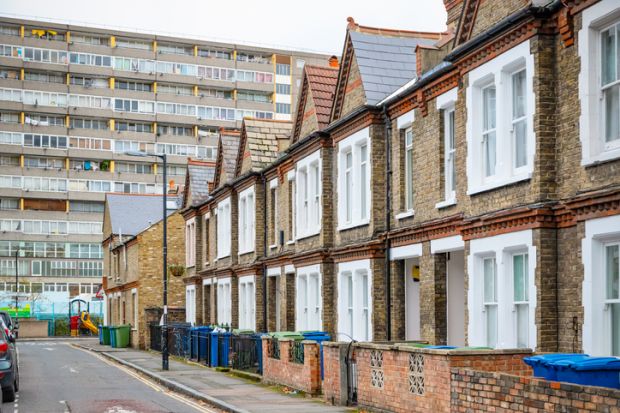Universities’ promises of social mobility through degrees are dishonest, according to the UK’s universities minister, Michelle Donelan.
Speaking at an event aiming to widen participation in higher education on 1 July, Donelan asserted that the majority of the work being done to recruit more students from “disadvantaged backgrounds” primarily services the needs of the institutions themselves. She claimed that the debt that students amass from their time at university does not match the enhanced career prospects they are promised, and that consequently universities “take advantage” of students.
Just over a week later, the education secretary, Gavin Williamson, delivered a virtual speech stating “we must never forget that the purpose of education is to give people the skills they need to get a good and meaningful job” and claiming to “stand for the forgotten 50 per cent” who do not go to university.
Such statements challenge decades of cross-party policy linking universities with social mobility. Additionally, they contradict the regulator of English universities, the Office for Students (OfS), which works with other agencies to enhance social mobility through university participation. And they evidence a surprising level of naivety about the society they purport to represent.
Although Donelan promotes the goal that “every person can rise to the position that their talent and hard work allows”, we know from the Sutton Trust’s Elitist Britain 2019 report that this is a pipedream. The Social Mobility Commission likewise shows that Britain remains a deeply class-based society, where prospects of social mobility remain “stagnant”. Even Upreach – an organisation that Donelan praises and is dedicated to helping “students from less-advantaged backgrounds to secure top jobs” – emphasises social immobility: “the top of many professions is dominated by those educated at private schools” even though “they educate only 7 per cent of the population”, it notes on its website.
The ministers’ silence on pervasive inequality reinforces the underlying premise of social mobility, the existence of meritocracy. This notion is aggressively marketed within higher education. The OfS’s National Collaborative Outreach Programme, now renamed Uni Connect, works by targeting and tracking primary school-aged children from “disadvantaged backgrounds” in an attempt to “raise aspirations” and facilitate their access to university. The Opportunity Area Plans unveiled in 2017 are awash with career-based rhetoric, and universities themselves reinforce faith in meritocracy by spending large sums of money on their careers services.
Yet the top spenders are not ranked the highest with regards to employability. One study suggests that University College Birmingham spends the most (just under £200 per student in 2018/19) but graduates of the universities of Oxford and Cambridge dominate the most desirable professional roles, demonstrating that entrenched privilege is a better guarantee of success.
Another means to promote the illusion of social mobility is to encourage students to think that they are highly successful. Analysis published by the OfS in December 2018 showed that 27 per cent of students obtained a first-class degree in 2016/17, up from 16 per cent in 2010/11. Of all university students, 78 per cent obtained an upper degree (first or 2:1), up from 67 per cent in 2010/11. Analysis concluded that the scale of this rise cannot be attributed to the rise in pupils’ prior attainment or changes in student demographics alone. Universities across the country use many techniques to gerrymander marks upwards to meet what has become an increased student demand for such marks, promoted by the transactional nature of tuition fees and loans.
As classic sociological studies demonstrate, social mobility is complex, understood longitudinally through various indicators and subject to multiple interpretations. But none of this is evident in government policy documents and ministerial pronouncements, where “social mobility” is invoked to appeal to individual desire and notions of success, while at the same time reinforcing the individualism that justifies extreme inequalities.
According to Donelan, “true social mobility is about getting people to choose the path that will lead to their desired destination and enabling them to complete that path”. This seemingly trite statement sounds like a retreat from any appeal to genuine social mobility, and it is.
The real punchline in these announcements is the suggestion that the place for “disadvantaged” students now is not in universities but in skills-based further education and apprenticeships. While this strategy may present young people with genuine opportunities to establish meaningful careers, class differentials will likely be reinvigorated. In the process, the “disadvantaged” will be deprived of arts, humanities and social sciences subjects that teach students to think critically and orient themselves beyond the capital-driven world of inequalities.
While mass university education has not seen a huge uptick in social mobility, it remains the case that the production of questioning and democratically conscious graduates is a pathway to addressing social immobility. But the narrative of social mobility in universities has coincided with the replacement of humanistic ideals with a business model of knowledge: a dead end for everyone. Related trends to substitute scholarly knowledge for “content delivery” are likely to get worse with the pandemic-fuelled acceleration of online learning.
With fewer students from non-traditional backgrounds now destined for higher education and many universities feeling obliged to narrow their provision to job market requirements, the UK’s long-standing social gradients will remain.
The government’s announcements seem to be a good demonstration of the Spanish expression gatopardismo: the policy of changing everything so that everything stays the same. The “disadvantaged”, mentioned eight times in Donelan’s short speech, remain a commodity whose aspirations are reshaped to suit the needs of the advantaged.
Chris Cunningham is a PhD student and Colin Samson is professor in the department of sociology at the University of Essex.




